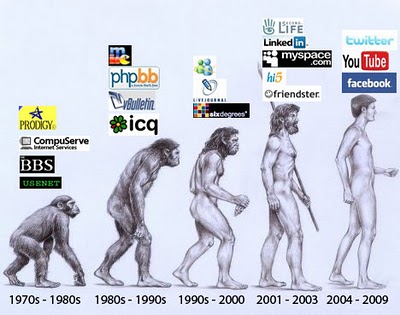Entrepreneurship has
been associated with mainly two things: Being innovative and starting a
business. While the later is commonly practiced, the former which is the core
of entrepreneurship is largely missing in most businesses. Every entrepreneur
can be a business person, but not all business people are considered innovative.
Being an entrepreneur demand more than just starting a business, it deals with
being innovative. Here are some non-innovative activities some business people
are engaged in most times:
1 Churning
instead of learning:
If you are engaged in repetitive and unproductive activities, you
duplicate efforts without any improvement, then your innovative ability is very
low. Innovative business people don’t waste time on repetitive and unproductive
activities, once they realize their mistakes, they learn from it, and they move
on.
Restricted instead of forward thinking: Creativity and flexibility is the bedrock of every entrepreneurial success. Being too rigid with rules and not using your initiatives in business decision making are some barriers to innovative traits you must avoid. Innovative people are not restricted in their thoughts, and are not held back by setbacks or the past.
Settling for less instead of pursuit of perfection: Those who settle for less are never innovative. If you don’t get uncomfortable with current practices and push yourself to pursue excellent by looking for better ways to achieve new results, you can’t go far in business. Successful entrepreneurs push the envelope with the aim of giving consumers what they didn’t even know they needed.
Myopic instead of visionary: Being too myopic about events and things that work now can hinder you from minding where the market is heading and what customers may likely need tomorrow. Innovative people are progressive, and have that pioneering spirit.
Searching for existing markets instead of creating the market: Are you busy searching for an existing market instead of creating one? Then you are not innovative. Ordinary business people are only interested in moving into existing markets, innovative business people are more concerned with creating, transforming and redefining the market. Existing markets are usually destroyed by innovative firms.
Isolated instead of networking: Isolation is not good for any entrepreneur. If you have problems interacting with others especially those with similar interest, then you can’t be innovative in business. You gain more connecting with people than isolating yourself. Networking is a tool for developing ideas by engaging different people with diverse experiences and background. Other people’s experiences give you inspiration and expand your capacity to imagine solutions beyond your ability as a person.
Risk averse instead of risk taker: Are you afraid to try new things in your business? Then you are not an innovative business person. Trying out new things keeps the entrepreneur ahead of the game. Calculated big risk yields big reward too!
Restricted instead of forward thinking: Creativity and flexibility is the bedrock of every entrepreneurial success. Being too rigid with rules and not using your initiatives in business decision making are some barriers to innovative traits you must avoid. Innovative people are not restricted in their thoughts, and are not held back by setbacks or the past.
Settling for less instead of pursuit of perfection: Those who settle for less are never innovative. If you don’t get uncomfortable with current practices and push yourself to pursue excellent by looking for better ways to achieve new results, you can’t go far in business. Successful entrepreneurs push the envelope with the aim of giving consumers what they didn’t even know they needed.
Myopic instead of visionary: Being too myopic about events and things that work now can hinder you from minding where the market is heading and what customers may likely need tomorrow. Innovative people are progressive, and have that pioneering spirit.
Searching for existing markets instead of creating the market: Are you busy searching for an existing market instead of creating one? Then you are not innovative. Ordinary business people are only interested in moving into existing markets, innovative business people are more concerned with creating, transforming and redefining the market. Existing markets are usually destroyed by innovative firms.
Isolated instead of networking: Isolation is not good for any entrepreneur. If you have problems interacting with others especially those with similar interest, then you can’t be innovative in business. You gain more connecting with people than isolating yourself. Networking is a tool for developing ideas by engaging different people with diverse experiences and background. Other people’s experiences give you inspiration and expand your capacity to imagine solutions beyond your ability as a person.
Risk averse instead of risk taker: Are you afraid to try new things in your business? Then you are not an innovative business person. Trying out new things keeps the entrepreneur ahead of the game. Calculated big risk yields big reward too!


